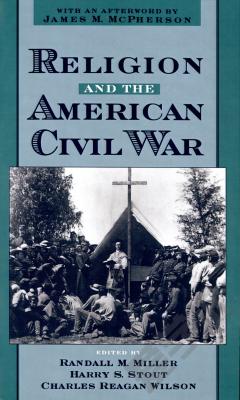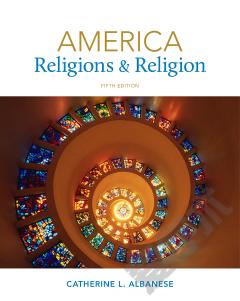Religion and the American Civil War
Religion and the American Civil War. Edited by Randall M. Miller, Harry S. Stout, and Charles Reagan Wilson. (New York and Oxford: Oxford University Press, 1998. Pp. xiv, 422. Paper, $24.00, ISBN 0-19-512129-5; cloth, $55.00, ISBN 0-19-512128-7.) This book of splendid essays had its beginning in 1994 at a symposium on religion and the Civil War held at the Louisville Presbyterian Theological Seminary. The individual contributors did not agree on a single religious meaning of the conflict, but their various approaches at ferreting out the way individuals experienced the war in religious terms and how the Civil War even redefined religion for many illustrated the essential theme that "in fundamental respects, religion stood at the center of the American Civil War experience" (p. 4). Sixteen essays written for the seminar have been revised and enlarged for publication in Religion and the American Civil War. A brief review can only hint at the fine arguments presented in this volume. Phillip Paludan's overview points to areas needing further investigation, such as a possible connection of postwar literature emphasizing Jesus with the wartime linking of the death and carnage of war with God's purpose. Mark Noll suggests that the struggle over the Bible and slavery not only helped bring on the war, but that the war also altered the dominant hermeneutical traditions in the United States. Eugene Genovese examines the doctrinal differences and their links to social and economic structures that provided the moral framework for secession and civil war. Bertram Wyatt-Brown offers a new explanation for the transformation of the lukewarm clerical support for secession into a zealous support for the Confederacy. George Fredrickson shows how the Civil War cost northern clergymen their prophetic role because they helped link God's purpose with the Union, a lashing of church to state that was difficult to untie after the war. Kurt Berends's study of the religious military press illustrates the role of the church press in bolstering morale at the front and sowing seeds for the lost cause ideology. Paul Harvey claims that a "Baptist democracy" mixing white supremacy and evangelicalism helped southerners cope with defeat and strengthened their cultural identity (p. 168). Daniel Stowell argues that their responses to questions about God's Providence raised by Stonewall Jackson's death prepared southerners to deal with the calamity of the Confederate defeat when it came twenty-three months later. â¦
{{comment.content}}








 京公网安备 11010802027623号
京公网安备 11010802027623号